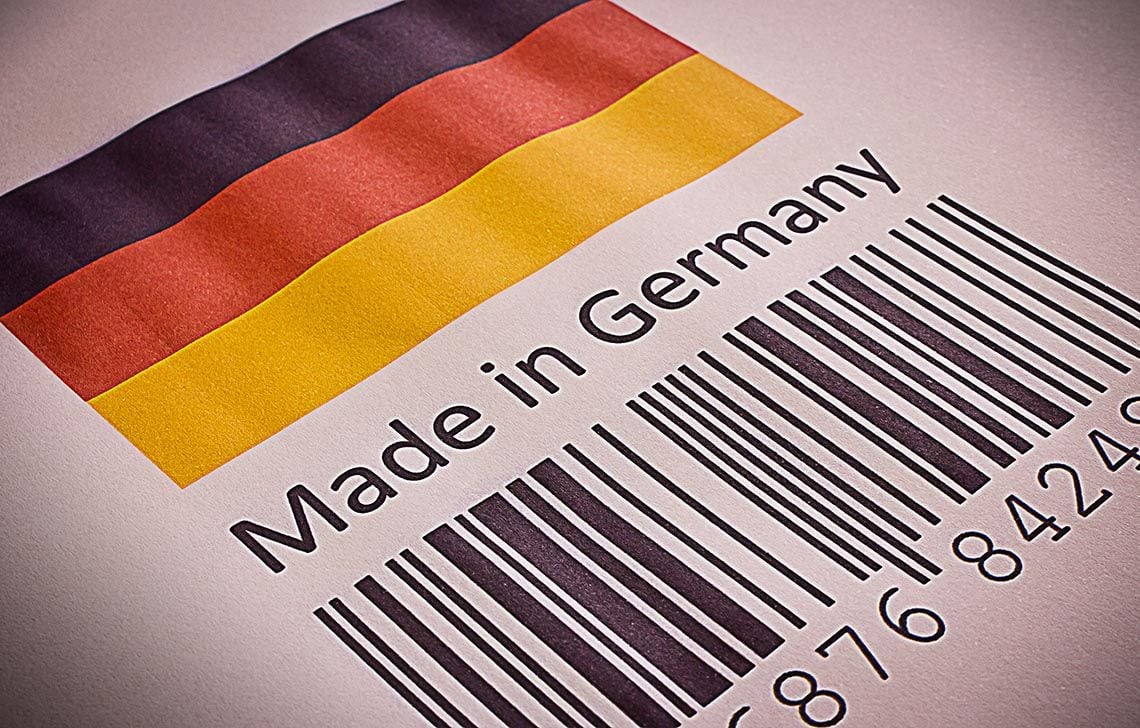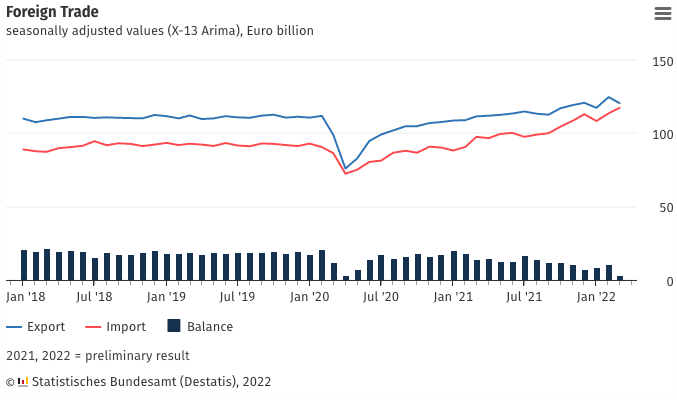Germany's Deteriorating Trade Balance Helps Explain Euro's Week Flow Fundamentals: BMO
- Written by: Gary Howes

© Adobe Stock
Germany's deteriorating trade balance helps explain the Euro's week flow fundamentals says an analyst at BMO Capital Markets.
Germany printed a nominal merchandise trade surplus of €3.2BN in March, down on €7.9BN in February according to Destatis.
German exports were down by 3.3% and imports were up by 3.4% on a calendar and seasonally adjusted basis compared with February 2022.
During the first quarter as a whole exports rose by 1.6% quarter-on-quarter while imports increased by 4.1%.
Stephen Gallo, Head of European FX Strategy at BMO Capital Markets in London says the result leaves Germany's trade surplus just €130 million above its 2000 low (€3.07).
He says in seasonally adjusted terms, Germany has recorded a merchandise trade surplus every single month since June 1991.
The developments meant Germany's Terms of Trade index fell to its lowest level since the mid-1980s during the first quarter.
Germany's trade surplus has long been a fundamental source of support for the Euro and how it evolves from here will continue to offer guidance to the bloc's single currency.
"We think Germany's weak net trade figures go a long way towards explaining the EUR's poor core flow fundamental, given how small the net short position in EURUSD is on the part of leveraged funds," says Gallo.
Destatis says compared with February 2022, exports to the Russian Federation decreased by 62.3% to 0.9BN euros in March 2022 owing of the sanctions imposed as a result of Russia's invasion of Ukraine.
But imports from Russia declined by just 2.4% to 3.6BN euros in the same period.
The inelastic nature of Germany's imports from Russia reflects the country's significant dependency on Russian hydrocarbons, particularly gas and oil.
Germany exported goods to the value of €66.6BN to the Member States of the EU, while it imported goods to the value of €56.7BN in March 2022.
Exports to the United States rose to €11.5BN but exports to China declined by 4.3% to €9.1BN, reflecting a divergence in economic fortunes between the world's number one and two economies.
But China still managed to export goods to the value of €16.3BN to Germany, which was a 15.8% increase compared with the previous month.
Exports to the UK declined by 3.9% to €5.5BN and imports from the United Kingdom increased by sizeable 40.8% to €3.7BN in the same period, suggesting an improvement in the UK's trade position with Europe's largest economy.





